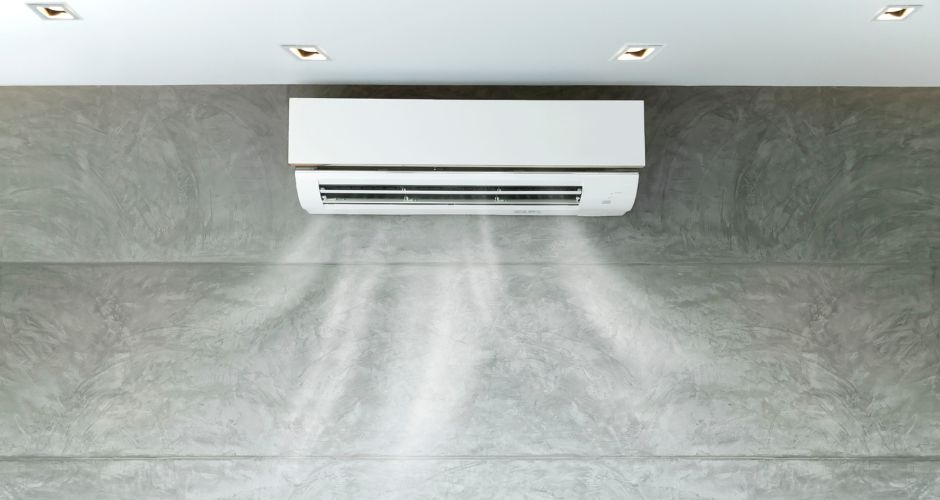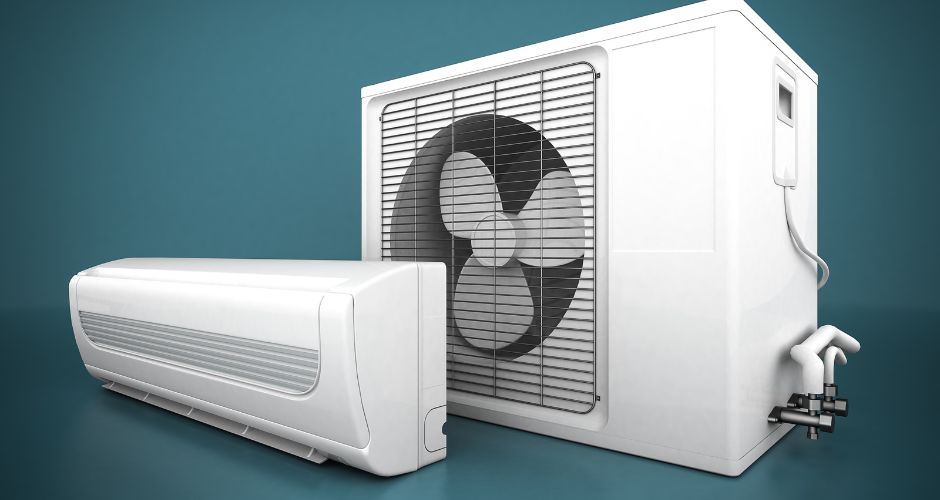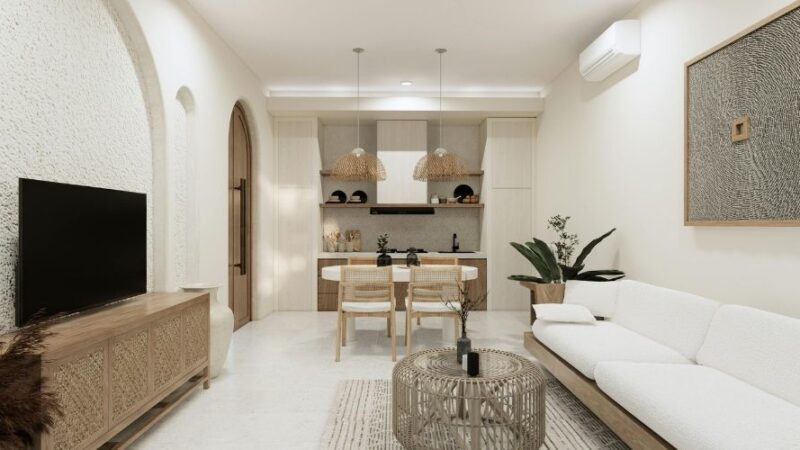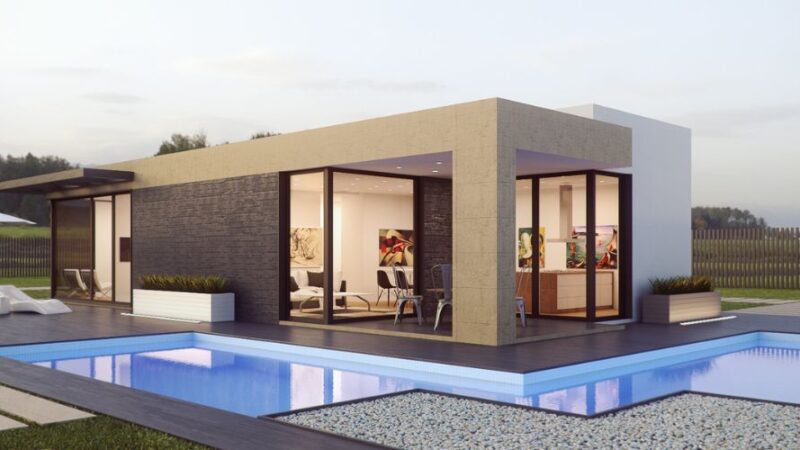9 Factors to Consider Before Buying an Air Conditioner

Shopping for an air conditioner can feel overwhelming with so many options available. It’s not just about picking the first sleek model you see—it’s about ensuring that the unit fits your needs, budget, and home. From energy efficiency and cooling capacity to the latest technology and warranty terms, every detail matters when making this important purchase.
A well-chosen air conditioner can transform your living space, providing year-round comfort while keeping energy costs manageable. However, overlooking critical factors can lead to inefficiencies, unexpected expenses, or a system that doesn’t meet your cooling needs.
In this guide, we’ll break down the 9 must-know factors you need to consider before buying an air conditioner. Whether you’re upgrading an old unit or installing one for the first time, this comprehensive overview will help you make an informed decision and enjoy a home that’s cool, comfortable, and cost-effective. Let’s get started!
Room Size and Cooling Capacity
The size of the room or space you intend to cool is one of the most critical factors to consider. Measure the square footage of the area and choose an air conditioner with the appropriate cooling capacity measured in British Thermal Units (BTUs). Selecting an air conditioner with too low or too high cooling capacity can result in inefficient cooling and increased energy consumption.
Energy Efficiency
- Energy efficiency is another crucial consideration when purchasing an air conditioner. Look for units with high Energy Efficiency Ratio (EER) or Seasonal Energy Efficiency Ratio (SEER) ratings. Higher ratings indicate better energy efficiency, resulting in lower electricity bills and reduced environmental impact over time.
Type of Air Conditioner
- There are several types of air conditioners available, including window units, portable units, split systems, and ducted systems. Each type has its advantages and installation requirements. Consider factors such as space availability, installation flexibility, and cooling needs to determine the most suitable type for your home or business.
Installation Requirements
- Before purchasing an air conditioner, assess the installation requirements to ensure compatibility with your space and electrical system. Determine whether professional installation is necessary or if you can install the unit yourself. Consider factors such as window size, electrical outlets, and any additional accessories needed for installation.
Noise Level
- The noise level of an air conditioner can significantly impact comfort, especially if you plan to install it in a bedroom or quiet area. Look for units with low decibel (dB) ratings for quiet operation. Reading customer reviews and conducting research can help you choose a unit with minimal noise output.
Maintenance Needs
- Regular maintenance is essential for the optimal performance and longevity of your air conditioner. Consider the maintenance requirements of different models, such as filter cleaning or replacement, coil cleaning, and servicing. Choose a unit that is easy to maintain to ensure hassle-free operation throughout its lifespan.
Additional Features
- Evaluate additional features and functions offered by different air conditioner models to enhance convenience and comfort. Look for features such as programmable thermostats, remote controls, adjustable fan speeds, sleep modes, and air purification or dehumidification capabilities to customize your cooling experience.
Brand Reputation and Warranty
- Research the reputation of air conditioner brands and manufacturers to ensure reliability, quality, and customer satisfaction. Read reviews from other customers and check the warranty coverage and terms offered by the manufacturer to protect your investment and provide peace of mind.
Budget
- Set a budget for your air conditioner purchase and consider both upfront costs and long-term operating costs. Compare prices and features of different models to find the best value for your budget while prioritizing energy efficiency and performance.
Air Conditioner Types
When it comes to cooling your home or workspace, there are several types of air conditioners to choose from, each with its own set of features, advantages, and installation requirements. Understanding the differences between these air conditioner types can help you select the best option for your specific needs. Here are some common types of air conditioners:
Window Air Conditioners
Window air conditioners are one of the most popular and affordable options for cooling individual rooms. These units are installed directly in a window opening and typically consist of a single housing containing all the components, including the compressor, condenser, evaporator, and fan. Window air conditioners are relatively easy to install and are suitable for cooling small to medium-sized rooms.
Split Air Conditioners
Split air conditioners, also known as ductless mini-split systems, consist of two main components: an indoor unit and an outdoor compressor/condenser unit. The indoor unit is typically mounted high on a wall or ceiling inside the room, while the outdoor unit is placed outside the building. Split air conditioners offer zoned cooling, allowing for individual temperature control in different rooms or zones. These systems are ideal for cooling multiple rooms or areas without the need for ductwork.
Portable Air Conditioners
Portable air conditioners are freestanding units that can be moved from room to room as needed. These units typically consist of a single housing containing the compressor, condenser, and evaporator, along with wheels or casters for easy mobility. Portable air conditioners are ideal for cooling single rooms or areas where permanent installation is not possible or practical. However, they may be less energy-efficient and less effective at cooling large spaces compared to other types of air conditioners.
Central Air Conditioning Systems
Central air conditioning systems are designed to cool entire homes or buildings through a network of ducts connected to a central unit. These systems typically consist of an outdoor compressor/condenser unit and an indoor air handler or furnace unit that distributes cooled air through the ductwork. Central air conditioning systems offer consistent cooling throughout the entire space and can be controlled by a central thermostat. However, they require professional installation and may be more expensive than other types of air conditioners.
Through-the-Wall Air Conditioners
Through-the-wall air conditioners are similar to window air conditioners but are installed directly through an exterior wall rather than in a window opening. These units are ideal for rooms or spaces where window installation is not possible or desired. Through-the-wall air conditioners require a permanent installation and may require professional assistance for proper mounting and sealing.
Each type of air conditioner has its own set of advantages and considerations, so it’s essential to carefully evaluate your cooling needs, budget, and installation requirements before making a decision. Whether you’re cooling a single room, multiple rooms, or an entire building, there’s an air conditioner type that’s right for you.
Specifications of AC
When considering purchasing an air conditioner, it’s essential to understand the various specifications and features that define its performance and capabilities. Here are some common specifications of air conditioners:
Cooling Capacity (BTUs):
The cooling capacity of an air conditioner is measured in British Thermal Units (BTUs) per hour and indicates the amount of heat the unit can remove from a room in one hour. Higher BTU ratings correspond to greater cooling capacity and are suitable for larger rooms or spaces.

Energy Efficiency Ratio (EER) or Seasonal Energy Efficiency Ratio (SEER):
The Energy Efficiency Ratio (EER) or Seasonal Energy Efficiency Ratio (SEER) measures the efficiency of an air conditioner by comparing its cooling output to its energy consumption. Higher EER or SEER ratings indicate greater energy efficiency and lower operating costs.
Noise Level (Decibels)
The noise level of an air conditioner is measured in decibels (dB) and indicates the amount of noise produced by the unit during operation. Lower dB ratings correspond to quieter operation, which is desirable for residential and commercial applications, especially in bedrooms or quiet areas.
Airflow (CFM)
Airflow is the volume of air circulated by the air conditioner in cubic feet per minute (CFM). Higher CFM ratings indicate greater airflow and better distribution of cooled air throughout the room or space.
Refrigerant Type
The refrigerant is the substance used to absorb and release heat in the air conditioning system. Common refrigerants include R-410A and R-22. It’s important to choose an air conditioner with a refrigerant that is environmentally friendly and compliant with current regulations.
Size and Dimensions
The size and dimensions of the air conditioner are important considerations, especially if you have limited space for installation. Measure the available space where the unit will be installed and ensure that the air conditioner fits properly without obstructing doors, windows, or other objects.
Installation Requirements
Consider the installation requirements of the air conditioner, including voltage, electrical requirements, mounting options, and any additional accessories or modifications needed for installation. Some air conditioners may require professional installation, while others can be installed by homeowners.
Controls and Features
Look for air conditioners with user-friendly controls and features that enhance convenience and comfort, such as programmable thermostats, remote controls, adjustable fan speeds, sleep modes, and air purification or dehumidification capabilities.
Warranty
Check the warranty coverage and terms offered by the manufacturer to protect your investment and provide peace of mind. Look for air conditioners with comprehensive warranties that cover parts and labor for an extended period.
How Do I Choose an Air Conditioner?
Choosing the right air conditioner for your needs involves considering several factors to ensure optimal cooling performance, energy efficiency, and comfort. Here’s a step-by-step guide to help you choose the best air conditioner:
Determine Your Cooling Needs:
- Assess the size and layout of the space you want to cool, such as a single room, multiple rooms, or an entire building.
- Consider factors like room size, ceiling height, insulation, and the number of occupants to determine the cooling capacity required.
Understand Different Types of Air Conditioners:
- Familiarize yourself with the various types of air conditioners available, including window units, split systems, portable units, and central air conditioning systems.
- Consider the advantages, installation requirements, and suitability of each type for your specific space and cooling needs.
Evaluate Energy Efficiency:
- Look for air conditioners with high Energy Efficiency Ratio (EER) or Seasonal Energy Efficiency Ratio (SEER) ratings, which indicate better energy efficiency and lower operating costs.
- Consider features like programmable thermostats, adjustable fan speeds, and energy-saving modes to maximize efficiency.
Consider Installation Requirements:
- Determine whether you prefer a unit that can be easily installed by yourself or one that requires professional installation.
- Consider factors like window size, electrical requirements, mounting options, and additional accessories needed for installation.
Review Noise Levels:
- Check the noise level (measured in decibels or dB) of the air conditioner, especially if you plan to install it in a bedroom or quiet area.
- Look for units with lower dB ratings for quieter operation and enhanced comfort.
Research Brand Reputation and Warranty:
- Research the reputation and reliability of different air conditioner brands and manufacturers.
- Check customer reviews, ratings, and feedback to ensure satisfaction and reliability.
- Review the warranty coverage and terms offered by the manufacturer to protect your investment and provide peace of mind.
Set a Budget:
- Determine your budget for purchasing and installing an air conditioner, considering both upfront costs and long-term operating costs.
- Compare prices, features, and energy efficiency ratings of different models to find the best value for your budget.
Seek Professional Advice if Necessary:
- If you’re unsure about which air conditioner to choose or have specific requirements, consult with HVAC professionals or experienced
Which AC Consumes Less Power?
When it comes to choosing an air conditioner that consumes less power, several factors come into play. Here are some tips to help you select an AC unit with high energy efficiency:
Look for High Energy Efficiency Ratings:
Check the Energy Efficiency Ratio (EER) or Seasonal Energy Efficiency Ratio (SEER) ratings of air conditioners. Higher ratings indicate better energy efficiency and lower power consumption. Look for units with higher EER or SEER ratings to ensure optimal energy savings.
Consider Inverter Technology:
Air conditioners equipped with inverter technology adjust the compressor speed based on cooling needs, resulting in consistent temperature control and reduced energy consumption. Inverter ACs are more energy-efficient than non-inverter models and can help lower electricity bills.
Opt for Energy Star Certified Models:
Choose air conditioners that are Energy Star certified, as they meet strict energy efficiency guidelines set by the Environmental Protection Agency (EPA). Energy Star certified AC units are designed to consume less power while delivering reliable performance.
Evaluate Cooling Capacity:
Select an air conditioner with the appropriate cooling capacity for your space to avoid over-sizing or under-sizing. An oversized AC may consume more power than necessary, while an undersized unit may struggle to cool the space efficiently, leading to increased energy consumption.
Consider Zoned Cooling:
If you have multiple rooms or zones to cool, consider opting for a ductless mini-split system with zoned cooling capabilities. Zoned cooling allows you to cool only the rooms that are occupied, reducing energy waste and optimizing efficiency.
Check for Advanced Features:
Look for air conditioners with advanced features like programmable thermostats, adjustable fan speeds, energy-saving modes, and sleep timers. These features allow you to customize the cooling settings and reduce energy consumption based on your preferences and usage patterns.
Regular Maintenance:
Ensure regular maintenance of your air conditioner to keep it operating efficiently. Clean or replace air filters regularly, clean the condenser coils, and check for any leaks or blockages. Proper maintenance helps improve airflow, reduce strain on the system, and optimize energy efficiency.
Recommended – Why Split Air Conditioners Are a Smart Choice?
Which Type of AC Is Suitable for Your Room?
Choosing the right type of air conditioner for your room depends on various factors, including the size of the room, your cooling preferences, and installation options. Here’s a guide to help you determine which type of AC is suitable for your room:
Window Air Conditioner:
- Suitable for: Single rooms, apartments, small to medium-sized spaces with windows.
- Advantages: Affordable, easy to install, ideal for rooms without ductwork.
- Considerations: Requires a window for installation, may obstruct natural light and views, limited cooling capacity compared to other types.
Split Air Conditioner:
- Suitable for: Multiple rooms, larger spaces, homes with existing ductwork or no window access.
- Advantages: Zoned cooling, quiet operation, energy-efficient, customizable installation options.
- Considerations: Professional installation required for outdoor unit mounting, higher upfront cost compared to window units.
Portable Air Conditioner:
- Suitable for: Rooms with limited window access, rental properties, temporary cooling needs.
- Advantages: Portable and easy to move, no permanent installation required, suitable for various room sizes.
- Considerations: Less energy-efficient than other types, may require venting through a window or wall, higher noise levels.
Ductless Mini-Split System:
- Suitable for: Homes without ductwork, rooms with specific cooling requirements, multi-zone cooling.
- Advantages: Zoned cooling, energy-efficient, quiet operation, customizable installation options.
- Considerations: Higher upfront cost, professional installation required for both indoor and outdoor units, regular maintenance needed.
Central Air Conditioning System:
- Suitable for: Homes with existing ductwork, large spaces, whole-house cooling.
- Advantages: Consistent cooling throughout the home, energy-efficient, quiet operation.
- Considerations: Higher upfront and installation costs, requires professional installation, may not be suitable for smaller spaces.
To determine which type of air conditioner is suitable for your room, consider factors such as the size and layout of the room, existing infrastructure (e.g., windows, ductwork), cooling requirements, budget, and long-term preferences. Additionally, consult with HVAC professionals or experienced technicians for personalized recommendations based on your specific needs and circumstances.
Conclusion
By carefully considering these essential factors before buying an air conditioner, you can make an informed decision and select the right unit to keep your space cool and comfortable during the hot summer months. Whether you’re cooling a single room or an entire building, thoughtful planning and research will help you choose an air conditioner that meets your needs and fits your budget.






